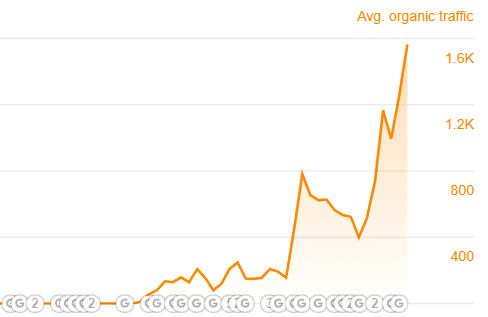
Is Your SEO Failing Due to a Single Mistake?
Could your SEO strategy be failing due to a single critical mistake? It’s possible. Sometimes, a single misstep can have a significant impact on your SEO efforts. Identifying and rectifying that mistake can be the key to turning things around and achieving better results. As a top SEO Consultant I see this frequently.
SEO encompasses a wide range of factors, and each element plays a crucial role in determining your website’s search engine rankings. From keyword research and on-page optimization to backlink building and technical SEO, every aspect contributes to your overall SEO performance.
One common mistake that can derail your SEO strategy is neglecting keyword research. Keywords are the foundation of SEO. If you fail to identify the right keywords relevant to your business and target audience, you risk optimizing your website for the wrong terms. This can lead to poor rankings and low visibility in search engine results.
Another critical mistake is overlooking on-page optimization. Optimizing your website’s meta tags, headings, URLs, and internal linking structure is essential to help search engines understand and categorize your content accurately. Ignoring these on-page elements can prevent your web pages from ranking as effectively as they could.
A lack of high-quality, engaging content is yet another common mistake. Content serves as the driving force behind your SEO efforts. If your content is thin, irrelevant, or fails to provide value to users, it won’t attract organic traffic or encourage backlinks. Compelling and informative content helps establish your authority, drives user engagement, and increases your chances of ranking higher in search results.
Moreover, technical SEO mistakes can also hinder your progress. Issues such as slow page speed, broken links, improper redirects, or a lack of mobile responsiveness can negatively impact user experience and search engine crawlability. These technical errors need to be addressed promptly to ensure optimal website performance and visibility.
Lastly, neglecting local SEO can be a detrimental mistake for businesses targeting local audiences. If you overlook optimizing your website for local searches, such as not creating or maintaining accurate business listings and gathering positive reviews, you risk missing out on valuable local traffic and potential customers.
Keep reading to discovery what you might be missing and how to fix it:
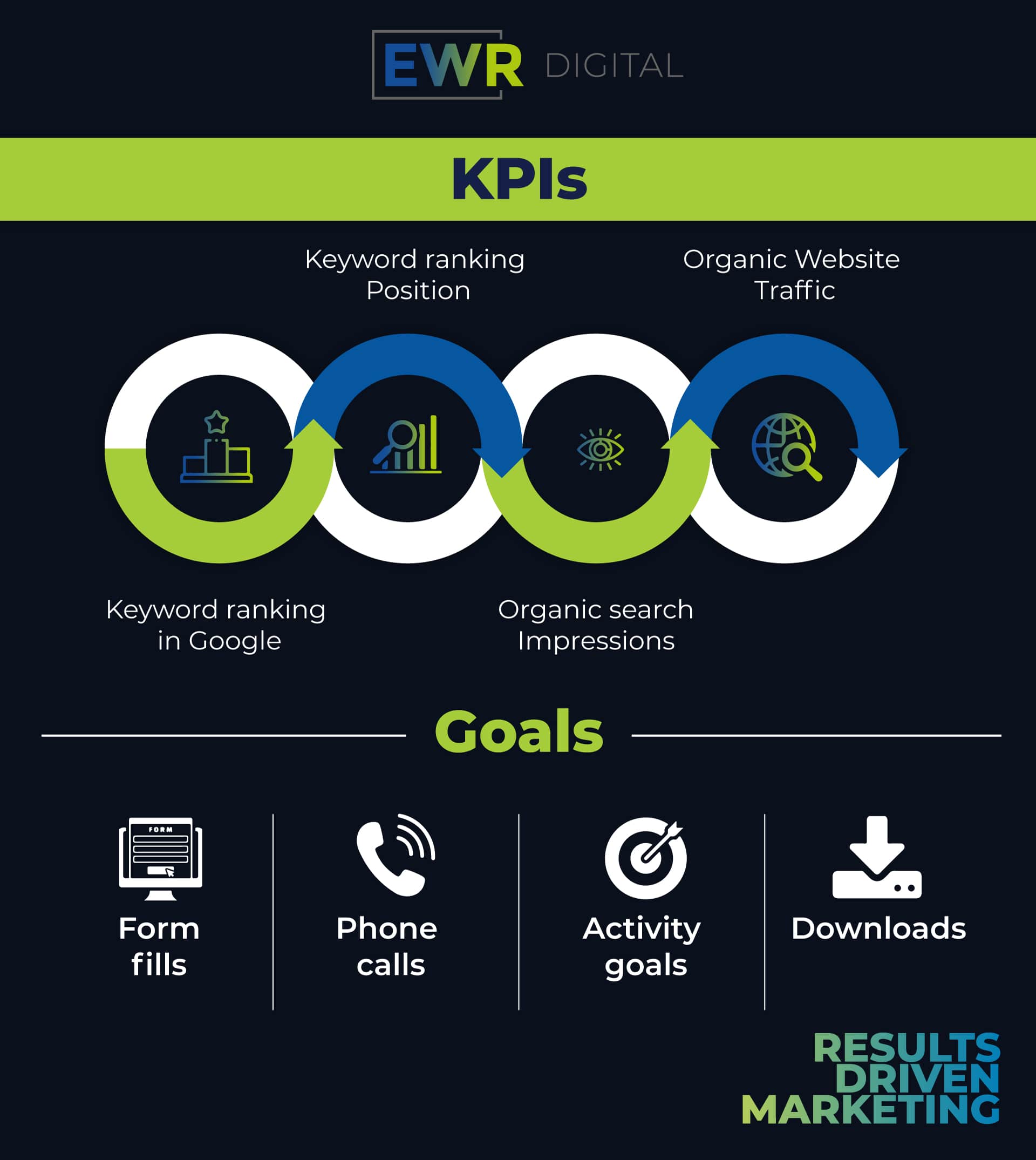
The Importance of Striking a Balance in Your SEO Strategy
When it comes to search engine optimization (SEO), ranking for core or head terms in Google can have a significant impact on your overall visibility and reach. Core or head terms typically represent broader, high-volume keywords that are frequently searched by users. These terms often have a higher level of competition, making it more challenging to secure top rankings.
However, ranking well for these core terms can provide a substantial advantage. One interesting aspect is that ranking for these primary keywords not only brings traffic directly from those searches but also qualifies you for a considerable portion of long-tail searches. Long-tail searches consist of more specific and often lengthier keyword phrases.
While each long-tail search might have a lower search volume individually, when combined, they make up a significant portion of overall search queries. Studies have shown that long-tail searches account for approximately 70-80% of total search volume. When you successfully rank for core terms, it demonstrates your website’s relevance and authority to Google. As a result, Google recognizes your website as a trustworthy source for related topics and queries, including the long-tail variations that users search for. By securing a strong presence in the search results for core terms, you automatically increase your chances of appearing in the search results for long-tail variations.
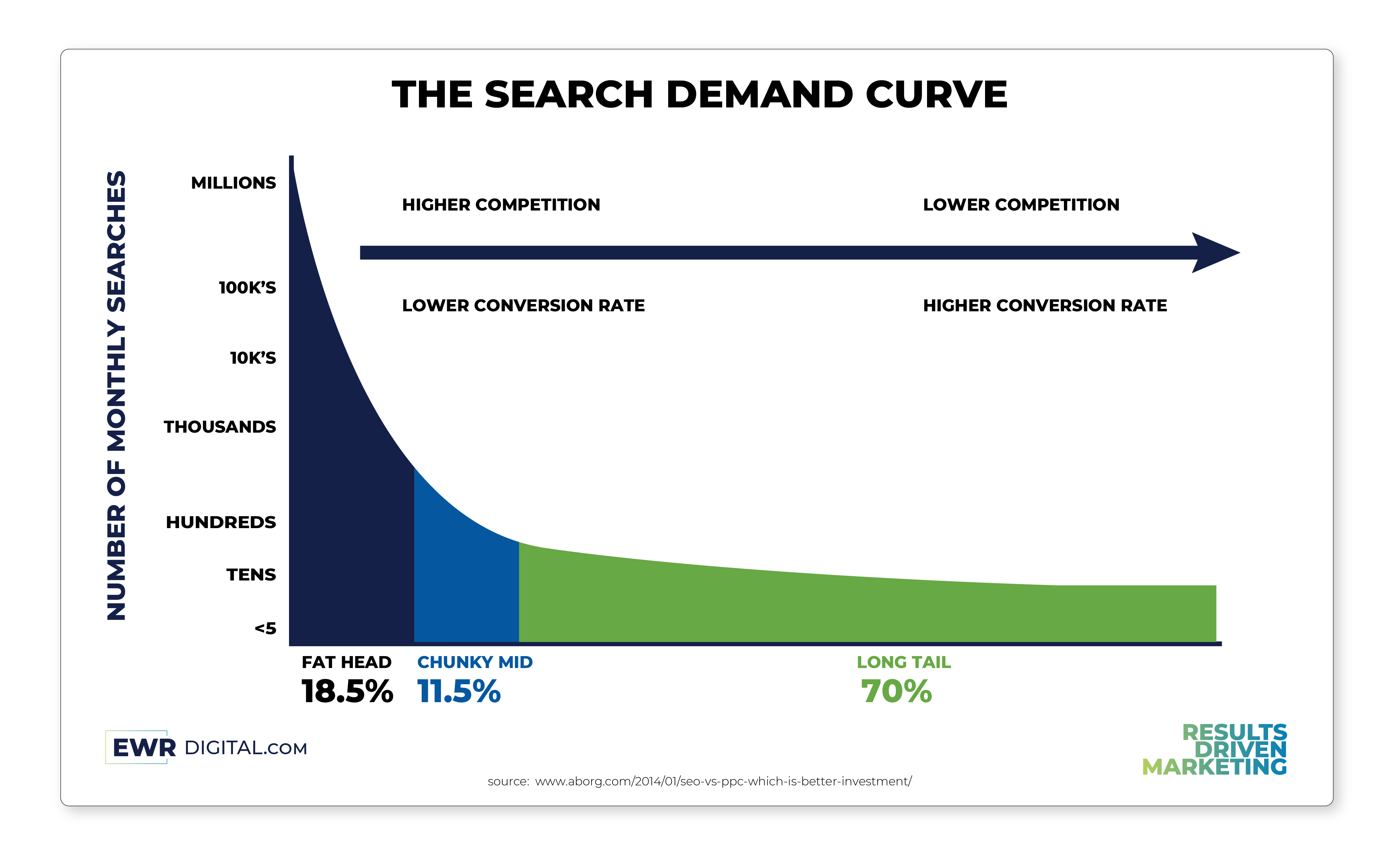
This qualification for long-tail searches is particularly beneficial because they often represent new or unique queries to Google. This means that users are exploring topics and asking questions that may not have been previously addressed or have a lot of existing content available. Ranking for core terms opens the door to capturing a significant portion of long-tail search traffic. It allows you to leverage your existing visibility and authority to attract users who are seeking more specific and niche information related to your core topic.
To maximize your SEO strategy’s effectiveness, it’s crucial to strike a balance between targeting core terms and creating content that satisfies long-tail queries. By covering both broad and specific topics comprehensively, you can position your website as an authoritative resource across a wide range of search queries, increasing your overall organic search visibility and potential for attracting relevant traffic.
Identifying and Rectifying SEO Mistakes
To determine if your SEO strategy is failing due to a specific mistake, it’s crucial to conduct a thorough audit of your website and analyze your overall SEO and search marketing efforts. Identifying any weaknesses or areas of improvement will allow you to make the necessary adjustments and get your SEO strategy back on track. Remember, SEO is an ongoing process, and rectifying mistakes promptly is essential to achieving long-term success.
Crafting an effective SEO strategy requires finesse and expertise. It can be frustrating when you’ve put in the effort but aren’t seeing the desired results. If you’ve set up your Facebook page and things seem to be going well, yet you’re not attracting new customers, generating leads, or converting sales, you’re not alone in facing these challenges. Navigating the ever-changing landscape of the internet can feel like a jungle. The dynamic nature of the online world can make it difficult to keep up. However, you don’t have to face it alone.
At EWR Digital, we understand the challenges and complexities of SEO, and we’re here to help. Over the years, Google has introduced numerous changes to its algorithms, which we affectionately refer to as “algorithm cataclysms” on our popular SEO podcast. Our goal is to diligently provide you with up-to-date information on these changes, offering guidance on how to adapt, and empowering you to grow your business through effective internet marketing and SEO strategies.
Understanding the Relationship Between Social Media and SEO
While many small business owners place significant emphasis on social media as part of their SEO strategy, it’s important to understand its actual impact.
Social Signals and Search Rankings: Although the exact impact is debatable, there is a correlation between social signals (such as likes, shares, and comments) and higher search engine rankings. It is believed that social media activity can indirectly influence SEO by increasing visibility, generating backlinks, and driving engagement.
In a old video, Matt Cutts, a former Google employee, suggested that social media did have an effect on SEO. However, Google itself has stated that social media signals are not directly used in search rankings. The controversy surrounding this topic has sparked discussions and debates, but ultimately, Google’s official stance is that social media does not impact search rankings.
Some controversy over whether Google takes social into account for SEO — perhaps Louis Gray will settle this in our next session! #social16
— PR News (@PRNews) June 6, 2016
take a look at this video.
The short version is, no, we don’t@louisgray @PRNews @JohnMu
Understanding the Role of Social Media
While social media may not directly determine search rankings, it doesn’t mean you should disregard it entirely. Cutts explained that Facebook and Twitter pages are treated like any other web pages in Google’s index. If something on these platforms can be crawled and indexed, it can potentially appear in search results. However, Google’s ranking algorithms don’t have specific signals based on factors like the number of followers or likes on social media.
In other words, social media remains relevant, but it’s not as crucial as SEO work. As Neil Patel highlights, social networks themselves function as powerful search engines, so they still hold value in terms of brand awareness and loyalty. However, when it comes to driving website traffic, organic search through SEO remains the top driver for most organizations.
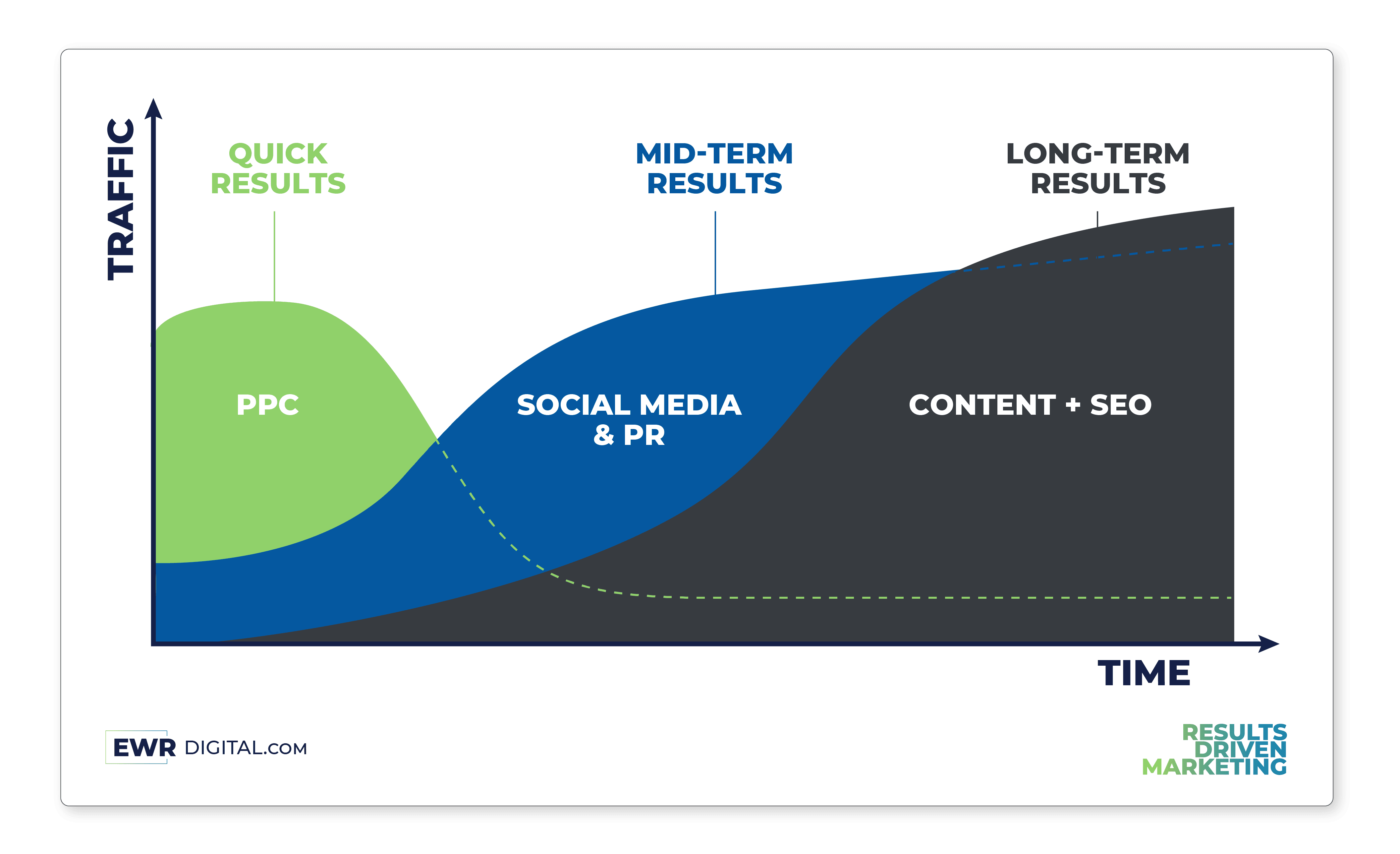
Analyzing the Impact of Sentiment on SEO Rankings
When it comes to assessing the sentiment of links and social media chatter, Google looks beyond just the quantity of mentions. The search engine also takes into account the sentiment expressed in those mentions. Positive sentiment indicates that the content or website being referenced is highly regarded, trusted, and appreciated by users. This positive sentiment can stem from factors such as positive reviews, endorsements from reputable sources, or enthusiastic recommendations from users.
Google recognizes that positive sentiment can serve as an indicator of quality and relevance. It implies that the content or website is valuable, informative, and meets the needs of users. As a result, Google may consider these positive mentions as positive signals for the website’s authority and reputation, potentially influencing its search rankings in a favorable way.
On the other hand, negative sentiment surrounding links or social media discussions can raise concerns about the credibility, trustworthiness, or quality of the content or website. Negative sentiment can arise from negative reviews, critical comments, or reports of unsatisfactory experiences. Google takes note of this negative sentiment and may view it as a potential signal that the content or website may not meet user expectations or provide reliable information.
While negative sentiment alone may not severely penalize a website’s rankings, it can certainly impact its perceived reputation and authority. Google aims to prioritize high-quality, trustworthy content in its search results, so negative sentiment can be a red flag for potential users and the search engine itself.
It’s important to note that sentiment analysis is just one aspect of Google’s complex algorithm. It considers numerous other factors when determining search rankings. Nevertheless, understanding the sentiment of links and social media chatter can provide insights into how Google perceives the reputation and user perception of a website or content piece, helping website owners and marketers gauge the overall impact of sentiment on their SEO efforts.
From Ignored to Dominant: Unleashing the Hidden Power of SEO
It’s important not to underestimate the power of SEO. It is an essential strategy for business owners who want to grow their businesses. A well-executed SEO plan enhances visibility, increases website traffic, and improves conversion rates, among other benefits. If you’re not generating leads, it’s time to prioritize SEO. If you’re unsure where to start, don’t worry. The EWR Digital team is here to guide you through the process, helping your business reach its full potential.
If you’re ready to discover more effective ways to boost your SEO strategy and skyrocket your business’s success, click the button below. Fill out the short form to receive a free web analysis and embark on your journey towards growth.
Your SEO strategy may be falling short for several reasons, leading to underwhelming results and limited online visibility. Here are a few factors that could contribute to a lackluster SEO performance:
-
- Inadequate Keyword Research: Keywords play a crucial role in optimizing your website for search engines. If you haven’t conducted thorough keyword research, you might be targeting the wrong keywords or missing out on valuable opportunities. Effective keyword research involves understanding your target audience’s search intent and identifying relevant, high-volume keywords that align with your business.
- Poor On-Page Optimization: On-page optimization involves optimizing various elements on your website to make them search engine-friendly. If you neglect crucial on-page elements such as meta tags, headings, URL structure, and internal linking, search engines may struggle to understand your content and rank it appropriately. Failing to optimize on-page elements can hinder your SEO efforts and make it difficult for your target audience to find you.
- Lack of Quality Content: Content is king in the world of SEO. If your website lacks valuable, engaging, and unique content, you may struggle to attract and retain visitors. High-quality content helps establish your expertise, builds trust with your audience, and increases the likelihood of gaining backlinks and social shares. If your content is thin, outdated, or lacks relevance, it can negatively impact your SEO performance.
- Neglecting Technical SEO: Technical SEO focuses on optimizing your website’s technical aspects to improve its crawlability, indexability, and overall performance. Ignoring technical SEO issues like slow page speed, broken links, improper redirects, or a lack of mobile responsiveness can result in poor user experience and lower search engine rankings. Technical SEO requires ongoing monitoring and optimization to ensure your website meets search engine standards.
- Insufficient Backlink Profile: Backlinks, or external links pointing to your website, are vital for SEO. They act as votes of confidence from other reputable websites, signaling to search engines that your content is valuable and trustworthy. If you’re not actively building high-quality backlinks or if your backlink profile is dominated by low-quality or spammy links, your SEO efforts may suffer. A strong backlink profile requires strategic outreach, content promotion, and relationship building.
- Ignoring Local SEO: If you operate a local business, neglecting local SEO can severely limit your online visibility within your target geographical area. Optimizing your website for local searches, creating and maintaining accurate business listings on platforms like Google My Business, and garnering positive online reviews are crucial for local SEO success. Failing to focus on local SEO can result in missed opportunities to attract local customers who are actively searching for your products or services.
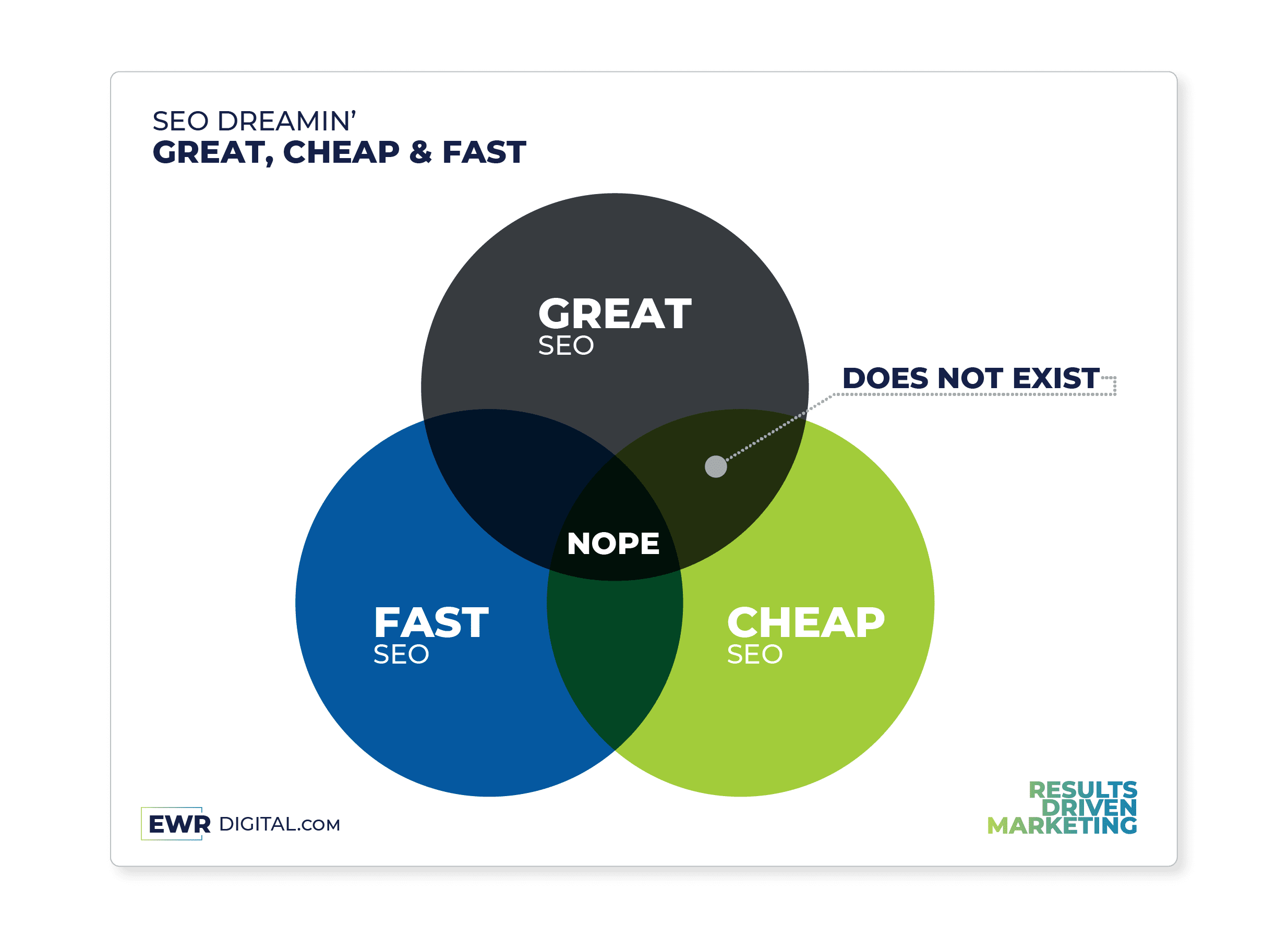
Strengthen Your SEO Strategy: Conducting an In-Depth Audit and Driving Lasting Results
In order to enhance your SEO strategy, it is crucial to perform a thorough examination, pinpoint any areas where you may be lacking, and proactively rectify any deficiencies to help improve your search rankings. Successful SEO necessitates ongoing dedication, staying informed about industry advancements, and incorporating proven methodologies to attain lasting outcomes and optimize your online visibility.
Are you encountering setbacks in your SEO strategy due to a critical error? Allow EWR Digital, a Houston, TX-based SEO company, to assist you in surmounting these obstacles and reaching your business objectives when it comes to Search Engine Optimization (SEO).
Is Your SEO Strategy Failing Because of This Mistake? | EWR Digital – Houston, TX
